Publications
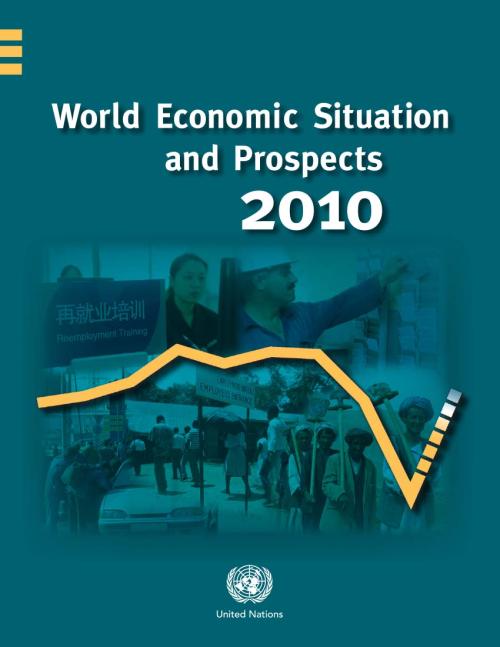
The world economy continued to improve in the first half of 2010, leading to a slight upward revision in the United Nations outlook for global growth. The pace of the recovery is too weak, however, to close the global output gap left by the crisis. The recovery is also uneven across countries. While growth prospects for some developing countries are encouraging, economic activity is lacklustre in developed economies and below potential elsewhere in the developing world.
Important weaknesses in the global economy remain. Despite the large amounts of liquidity injected into the financial system, credit growth remains feeble in major developed economies and the process of financial…
The United Nations Statistical Yearbook is an annual compilation of a wide range of international economic, social and environmental statistics for over 200 countries and areas of the world, compiled from sources including UN agencies and other international, national and specialized organizations. The fifty-second issue contains data available to the Statistics Division as of June 2008 and presents them in 68 tables on topics including: agriculture; balance of payments; communication; development assistance; education; energy; environment; finance and gender.
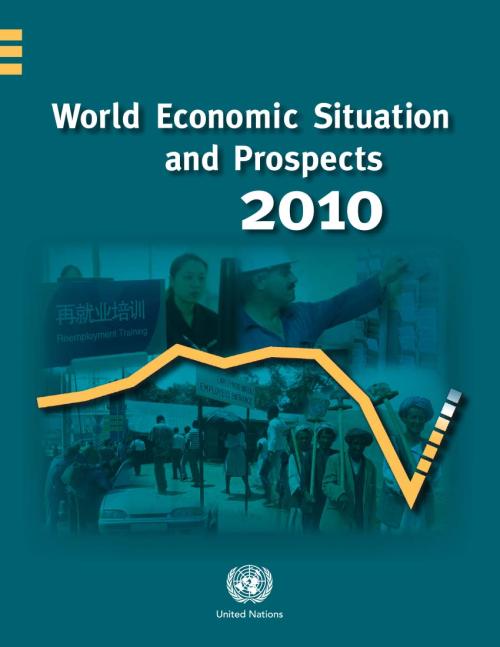
The world economy is on the mend. After a sharp, broad and synchronized global downturn in late 2008 and early 2009, an increasing number of countries have registered positive quarterly growth of gross domestic product (GDP), along with a notable recovery in international trade and global industrial production. World equity markets have also rebounded and risk premiums on borrowing have fallen.
The recovery is uneven and conditions for sustained growth remain fragile. Credit conditions are still tight in major developed economies, where many major financial institutions need to continue the process of deleveraging and cleansing their balance-sheets. The rebound in domestic demand…
The International Recommendations for Tourism Statistics 2008, which has been released in 2010, provides a comprehensive methodological framework for collection and compilation of tourism statistics in all countries irrespective of the level of development of their statistical systems. The publication also contains a wealth of information that might be of interest to data users who would like to understand better the nature of tourism data. The international recommendations were drafted by the World Tourism Organization in close cooperation with the UN DESA Statistics Division, the International Labour Organization and other members of the Inter-Agency Coordination Group on Tourism…
The Supplement covers a number of topics deemed to be beneficial to trade data compilers, including an overview of compiling practices, the revised International convention on the simplification and harmonization of customs procedures (revised Kyoto Convention), the 2007 edition of the Harmonized Commodity Description and Coding System, specific compilation issues such as goods for processing and re-exports and an overview of the differences between IMTS and general merchandise.
The present report recognizes that further progress has been made towards fulfilling the promises embodied in Millennium Development Goal 8 (MDG 8). At the same time, it identifies important setbacks, most of which have arisen from the current state of the world economy which is suffering its severest downturn since the Great Depression of the 1930s. Some donor countries are cutting their budgets for official development assistance (ODA); several developed and developing countries have resorted to protectionist measures; resurging debt distress is increasing the need for further and broader debt relief; the costs of essential medicines are on the rise; and the technological divide…
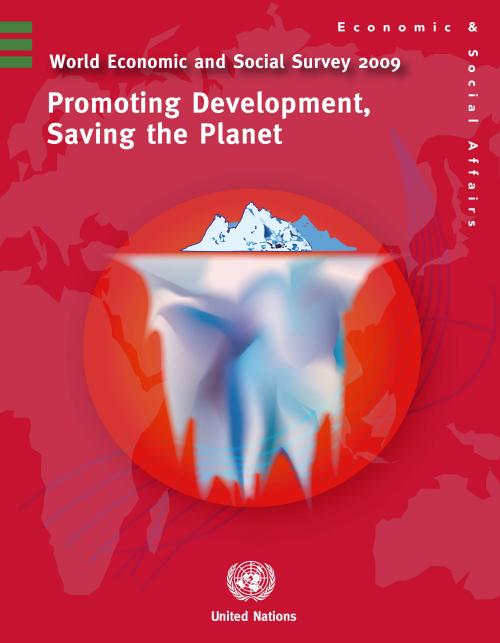
The central message of the World Economic and Social Survey 2009 is that addressing the climate challenge cannot be met through ad hoc and incremental actions. In the first place, it requires much stronger efforts by advanced countries to cut their emissions. The fact that in this regard more than a decade has been lost since the adoption of the Kyoto Protocol to the United Nations Framework Convention on Climate Change only adds urgency to those efforts. However, even if advanced countries begin to match their words with deeds, their efforts are, by themselves, unlikely to be sufficient to meet the climate challenge. The active participation of developing countries is now required and…
The Millennium Development Goals report presents a yearly assessment of global progress towards achieving the MDGs. It is prepared by the Statistics Division at DESA on the basis of input provided by the members of the Inter-agency and Expert Group on MDG Indicators. Less than six years away from the 2015 deadline to achieve the MDGs, this report warns that despite many successes, overall progress has been...
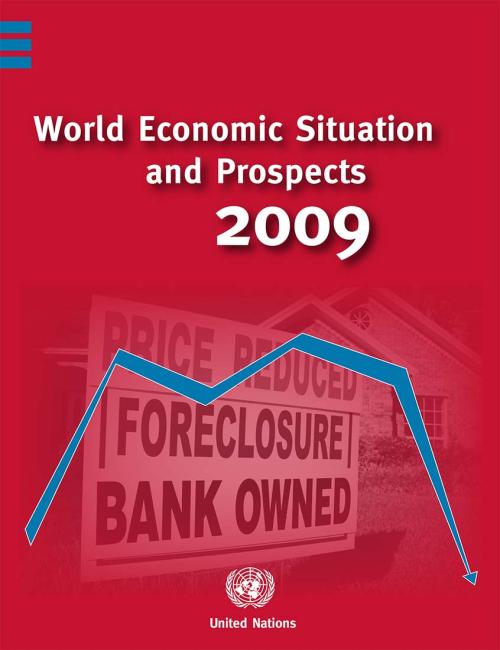
Faced with the worst recession since the Second World War, the United Nations baseline forecast for world economic growth has been revised downward compared with the pessimistic scenario of the World Economic Situation and Prospects 2009 published in January. The world economy is expected to shrink by 2.6 per cent in 2009, after an expansion of 2.1 per cent in 2008 and nearly 4 per cent per year during the period 2004-2007. While a mild recovery is expected in 2010, risks remain on the downside. Developing countries are disproportionately hard hit by the crisis.
The global policy response has been unprecedented, including monetary, financial and fiscal measures to stabilize…
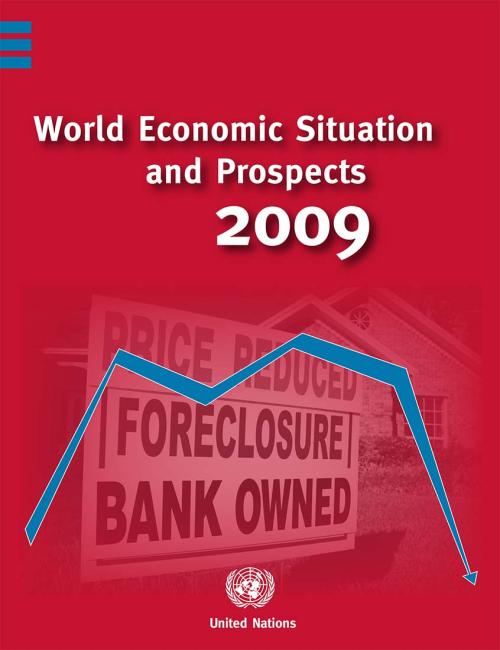
The world economy is mired in the worst financial crisis since the Great Depression. What first appeared as a sub-prime mortgage crack in the United States housing market during the summer of 2007 began widening during 2008 into deeper fissures across the global financial landscape and ended with the collapse of major banking institutions, precipitous falls on stock markets across the world and a credit freeze. These financial shockwaves have now triggered a full-fledged economic crisis, with most advanced countries already in recession and the outlook for emerging and other developing economies deteriorating rapidly, including those with a recent…
This report presents an assessment of progress, based on data available as of June 2008 on all official Millennium Development Goals (MDG) indicators, including the new ones introduced. The aggregate figures in the report provide an overall assessment of regional progress under the eight goals and are a convenient way to track advances over time.
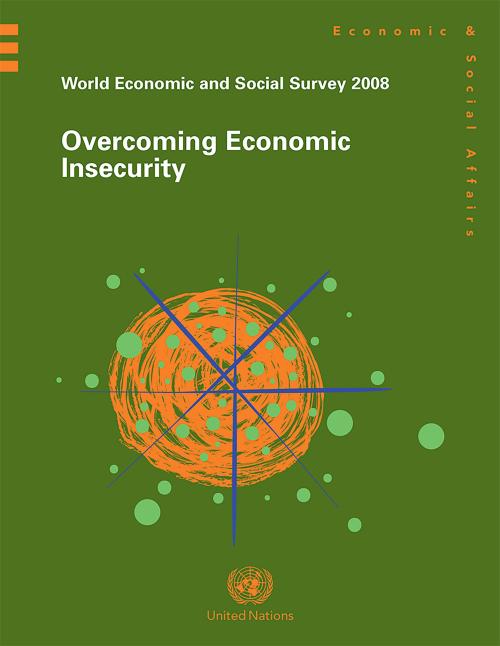
According to the 2008 World Economic and Social Survey, economic insecurity arises from the exposure of individuals, communities and countries to adverse events, and from their inability to cope with and recover from the downside losses. The risk and threats vary from community to community; in advanced countries, they have been associated with a significant rise in inequality, a hollowing out of middle-class lifestyles and reduced welfare protection. Elsewhere, economic shocks and premature deindustrialization have raised fears of an insufficiency of the formal sector jobs needed to accommodate an expanding urban population. In still other places, food insecurity has given rise to…
 Welcome to the United Nations
Welcome to the United Nations